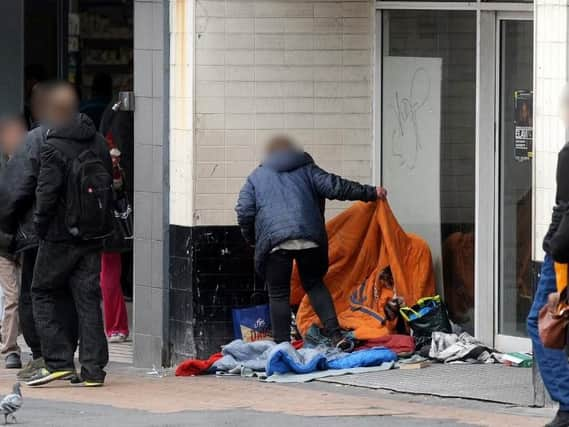Rough sleepers in Preston to get 'Somewhere Safe to Stay'


The hub will be up and running by Spring 2019 with government provisionally investing up to £420,620 and forms part of a £110m Rough Sleeping Strategy.
The Somewhere Safe to Stay centre will be one of 11set up across the country. The government says these will help provide immediate shelter and rapid assessment for those sleeping rough or at risk of doing so as well as specialist support to address those with complex needs such as mental health problems and substance misuse.
Advertisement
Hide AdAdvertisement
Hide AdToday’s news builds on the first year of the Rough Sleeping Initiative, launched in March, which is providing £64m to over 80 councils over the next two years to support rough sleepers in their area.
Communities Secretary Rt Hon James Brokenshire MP said: “No-one should ever have to face a night on the streets. The new centre announced today will mean vulnerable people sleeping rough in Preston will have somewhere safe to stay while they recover from life on the streets.
“These are vulnerable people, often dealing with complex mental health problems and addictions, requiring specialist help to truly tackle these issues head on and turn their lives around.
“That’s why these vital new hubs will ensure those on the streets have access to professional help and guidance to start their recovery.”
Advertisement
Hide AdAdvertisement
Hide AdThe location of the Preston hub has not yet been revealed but the government says it will be situated in the centre of the city and operated by an experienced third sector partner for Preston City Council.
It will help provide emergency accommodation, better integrated physical and mental health services.
Each centre will help those sleeping rough can be quickly assessed by specialist outreach workers, so they get the support they need to take the first steps towards recovery.
The hubs will play a vital role in identifying the issues that led to an individual sleeping on the streets in the first place, and provide support to help them through things like a relationship breakdown, addiction or financial difficulties.
An estimated 6,000 people are expected to receive support through all 15 hubs by 2020.